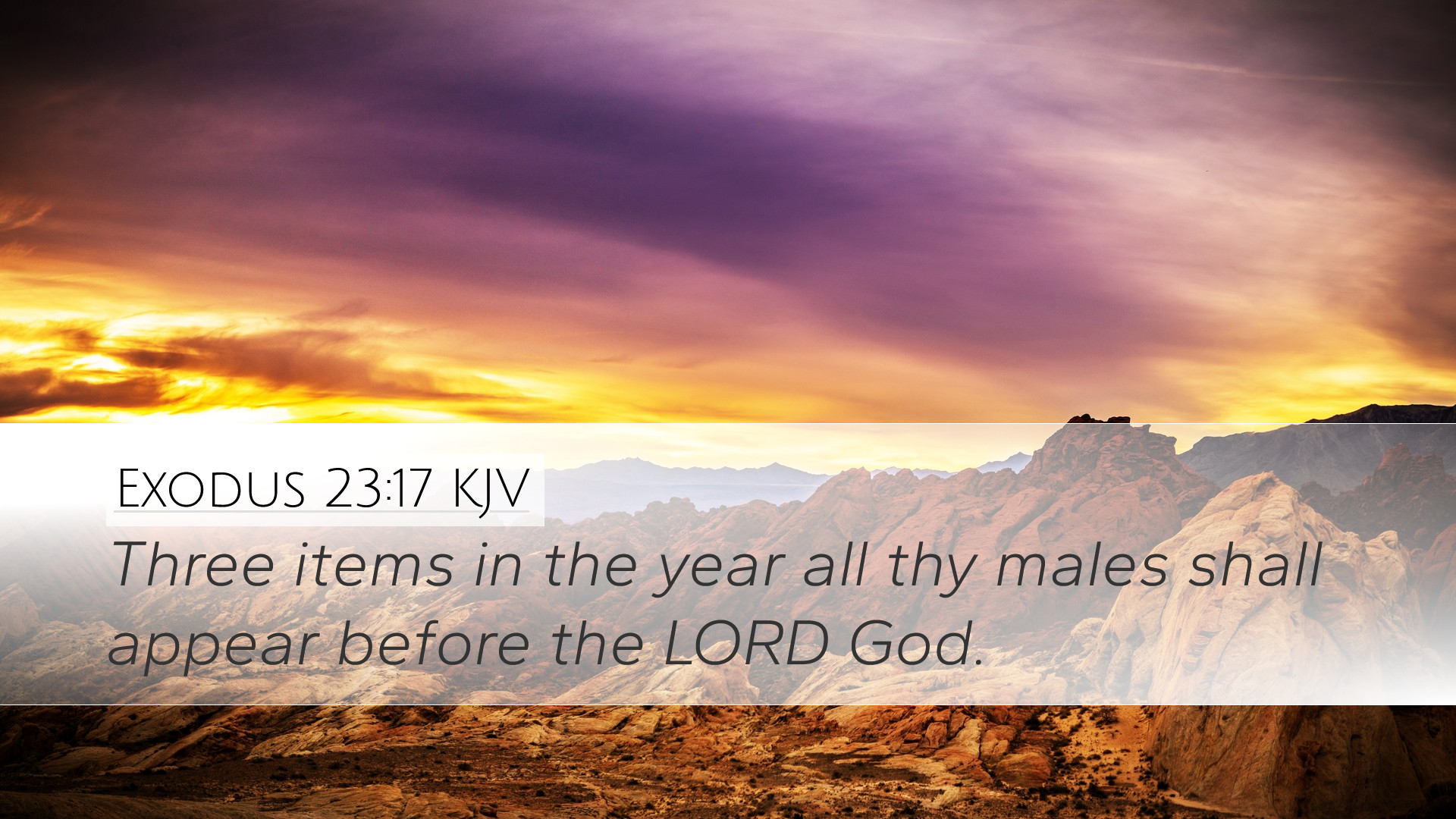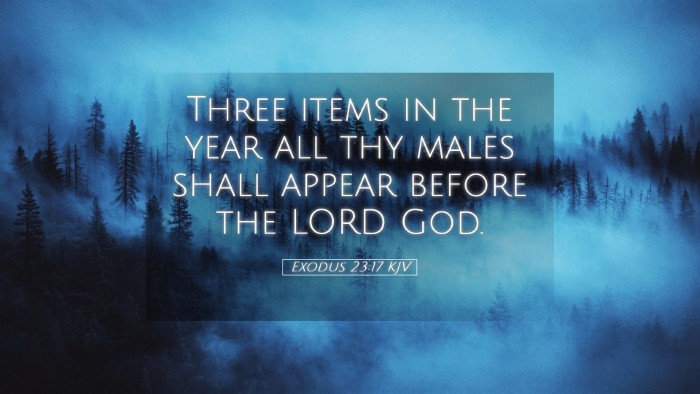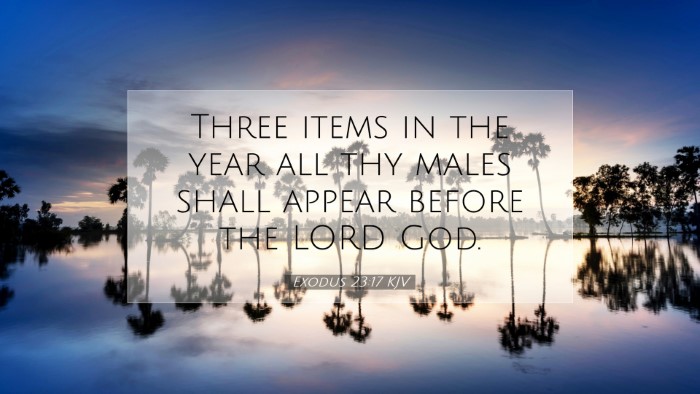Exodus 23:17 Commentary
Text of the Verse
“Three times in the year all thy males shall appear before the Lord God.”
Overview
This verse forms part of a larger context dealing with the laws and ordinances given to the Israelites, emphasizing their covenantal duties towards God. The directive to appear before the Lord three times a year is not only a call to worship but also signifies the importance of communal gatherings in the Israelite religious life.
Historical and Cultural Context
The command encompasses three major Jewish festivals where all males were expected to present themselves before God: Passover (Pesach), Pentecost (Shavuot), and Tabernacles (Sukkot). These occasions were pivotal in reinforcing community and faith identity as Israelites gathered to commemorate divine deliverance, harvest blessings, and the journey in the wilderness.
Insights from Commentaries
Matthew Henry
Henry outlines the significance of the mandated feasts, noting that they were set times for the Israelites to acknowledge God's sovereignty and providential care. He states:
- “This points to the times and seasons of religious worship, where we should be present to profess our faith in God and His promises.”
- “Meeting before God serves to keep the people aware of their identity as His chosen, called to worship and sacrifice.”
Albert Barnes
Barnes emphasizes the need for regular worship and the communal aspect of faith adherence:
- “The requirement of appearing before the Lord thrice a year supports the collective religious obligation, underlining that worship is an act best done within the community of believers.”
- “These appointed times also serve as reminders of God’s faithfulness and historical acts of salvation.”
Adam Clarke
Clarke details the specific feasts linked to this verse, pointing out their theological and practical implications:
- “Each feast not only commemorated a critical aspect of Israel’s history but also taught important lessons of obedience, dependence, and celebration of the Lord’s provision.”
- “The notion that all males should appear signifies leadership in worship, representing the head of households and their responsibility to guide families in faith.”
Theological Implications
Theologically, this passage delves into the nature of covenantal relationship and communal worship. It reflects God's desire for a close relationship with His people, manifesting through regular engagement in worship and remembrance. It reminds contemporary believers of the importance of communal faith practices and the necessity of setting aside time to honor God collectively.
Practical Applications for Today
Modern-day application of Exodus 23:17 encourages individuals and congregations to create rhythms of worship and remembrance:
- Regular Worship: The importance of attending regular church services and participating in communal worship activities.
- Festival Observance: Recognizing holidays and seasons in the Christian calendar as times for reflection, celebration, and community.
Conclusion
Exodus 23:17 serves as a vital reminder of God's call for His people to convene for worship. It reinforces the shared responsibility that believers have to gather regularly, reflecting on the love and salvation God has provided throughout history. Understanding the context and implications of this verse can deepen the spiritual life of congregations and individuals, in ways that echo the communal and covenantal faith of the Israelites.


